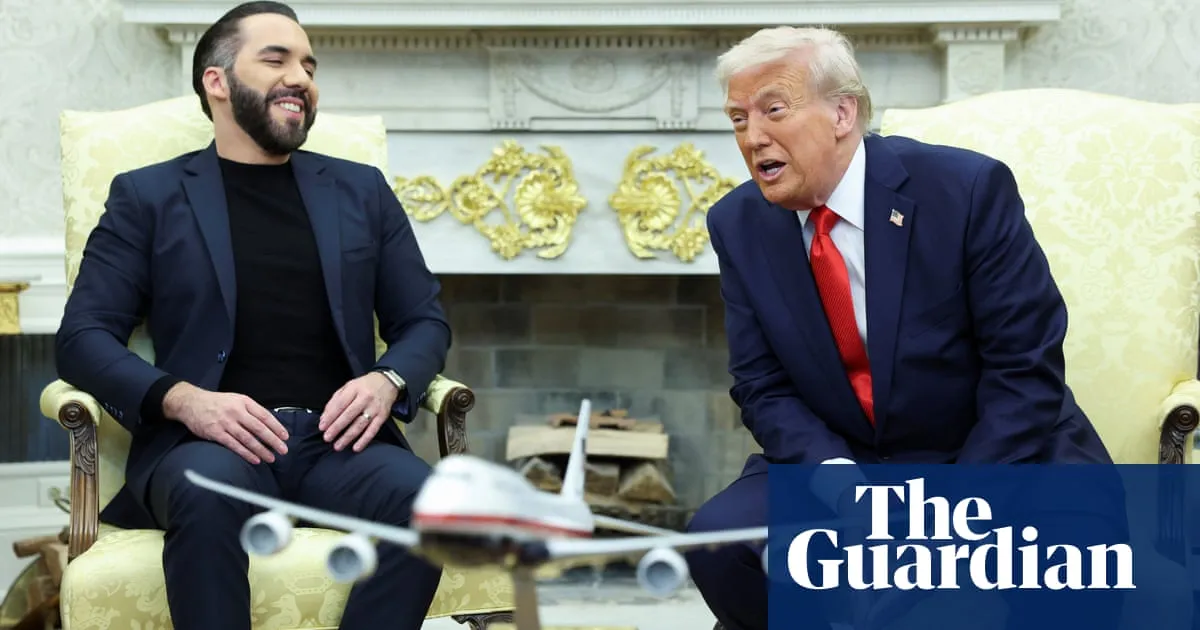
On Monday, the Trump administration issued misleading statements regarding a recent US Supreme Court decision that mandated the return of a man, Kilmar Abrego García, who had been wrongly deported to El Salvador. The administration's interpretation of the Supreme Court's ruling appeared to distort its intent, leading to a justification for inaction on securing Abrego García's release.
Last week, the Supreme Court unanimously ordered the Trump administration to "facilitate" the release of Abrego García. This ruling was significant as it highlighted that he was entitled to protection from deportation to El Salvador, irrespective of any alleged gang affiliations with the notorious MS-13 gang. However, during an Oval Office meeting with El Salvador's President, Nayib Bukele, President Trump relied on officials who provided questionable interpretations of the Supreme Court order, claiming that the US was powerless in the matter.
Stephen Miller, the Trump administration's policy chief, suggested that the ruling only indicated that if El Salvador chose to send Abrego García back to the US, the US could then deport him a second time. This statement contradicted the Supreme Court's clear directive to return Abrego García, which upheld a lower court's ruling. Similarly, US Attorney General Pam Bondi characterized the order as merely requiring the administration to arrange transportation for Abrego García if El Salvador decided to release him.
The Oval Office meeting marked a worrying trend in the Trump administration's strategy to create uncertainty around court orders, particularly in cases they wish to avoid acting upon. In Abrego García's case, the officials seemed to fabricate uncertainty in a strikingly evident manner. Moreover, the fact that the US government is financially supporting El Salvador to detain deportees in the notorious Cecot prison undermines the administration's claim of lacking the authority to return Abrego García to US soil.
The legal troubles for Abrego García began in 2019 when he was apprehended by police outside a Home Depot in Maryland. During questioning about a murder, he denied any involvement in criminal activities and insisted that he was not part of a gang. Following these events, he entered immigration proceedings, where officials wrongly claimed he was associated with MS-13, based on his attire and the unverified testimony of a confidential informant.
A US immigration judge acknowledged the potential for Abrego García to be a gang member but blocked his deportation to El Salvador, citing the risk of persecution there. The Trump administration chose not to appeal this decision, and Immigration and Customs Enforcement later admitted in court filings that Abrego García's deportation was an "administrative error." The Supreme Court also ruled his removal illegal, affirming the immigration judge's decision.
In a press briefing on Monday morning, Miller acknowledged that the administration had erred, as the immigration judge had issued a withholding order preventing deportation to El Salvador. He clarified that such an order does not merely pause deportation but indicates that in the worst-case scenario, a person could be sent to a different country. However, these concessions dissipated later in the day when he joined Trump and Bukele in the Oval Office, suggesting that bringing Abrego García back to the US would equate to kidnapping a citizen of El Salvador.
As the situation unfolds, it is evident that the Trump administration's handling of the Supreme Court ruling and the deportation of Kilmar Abrego García raises significant legal and ethical questions. The misinterpretation of judicial decisions and the ongoing struggle for clarity in immigration policy highlight the complexities surrounding deportation cases, especially those involving vulnerable individuals facing potential harm in their home countries.